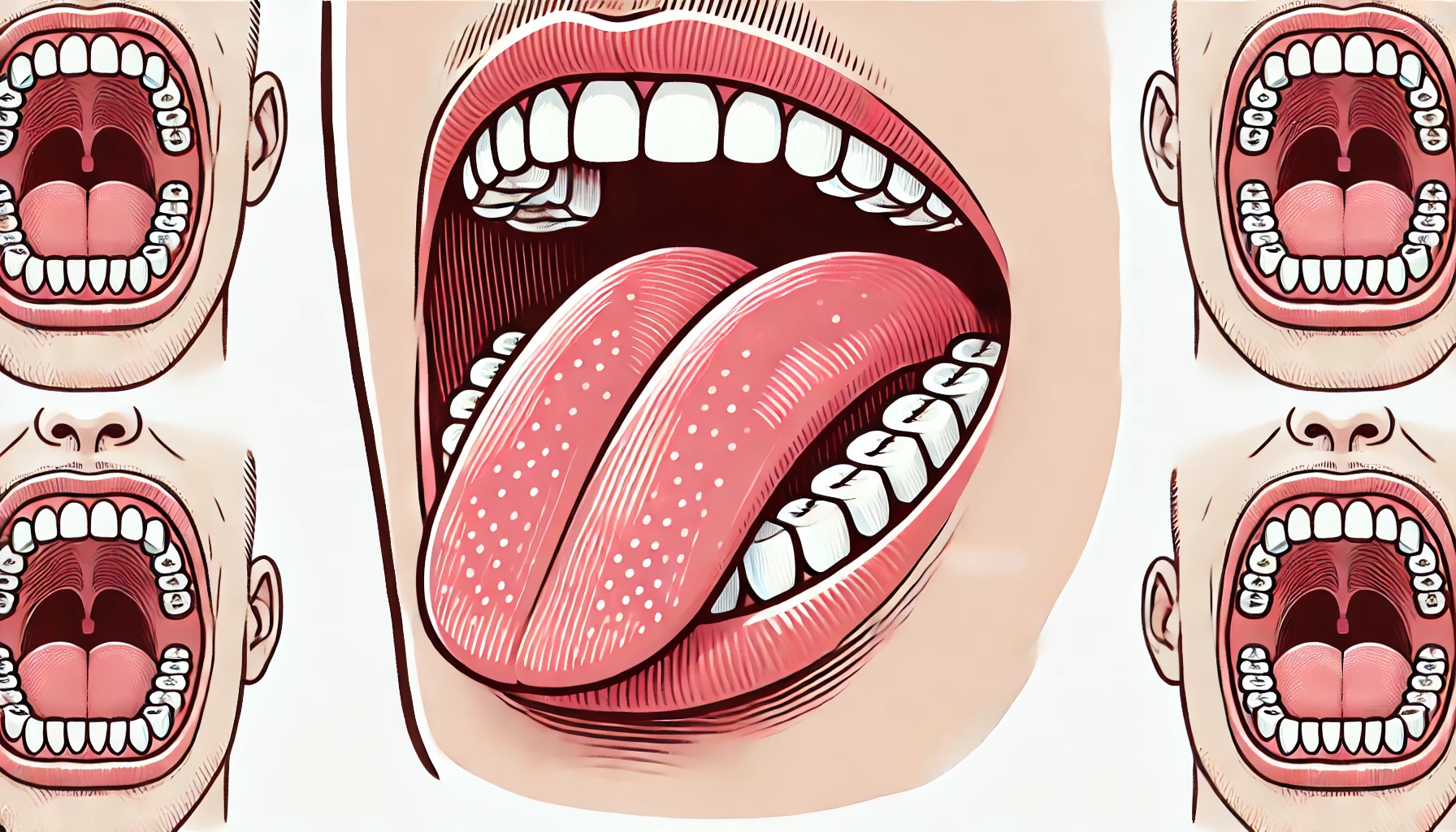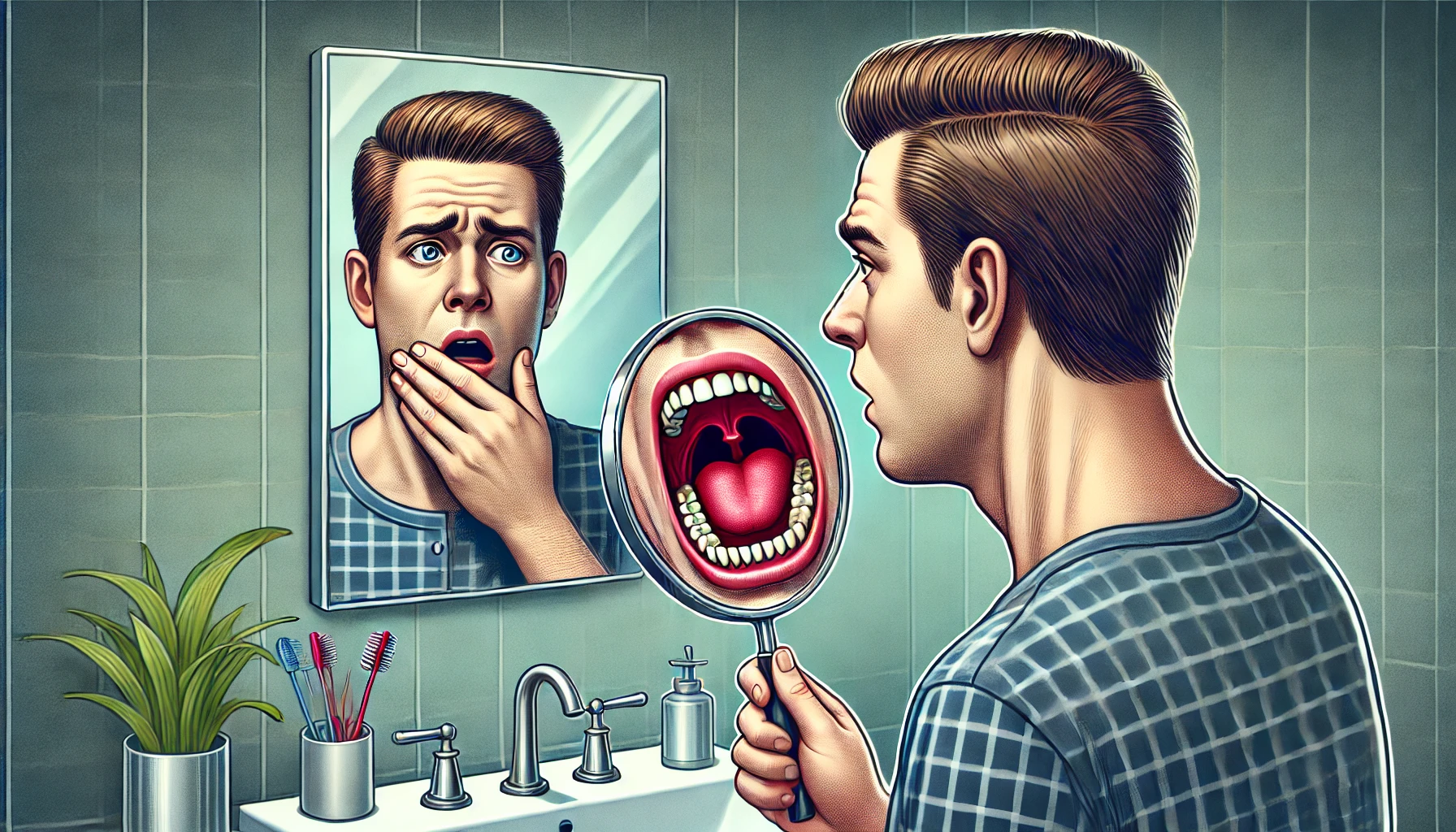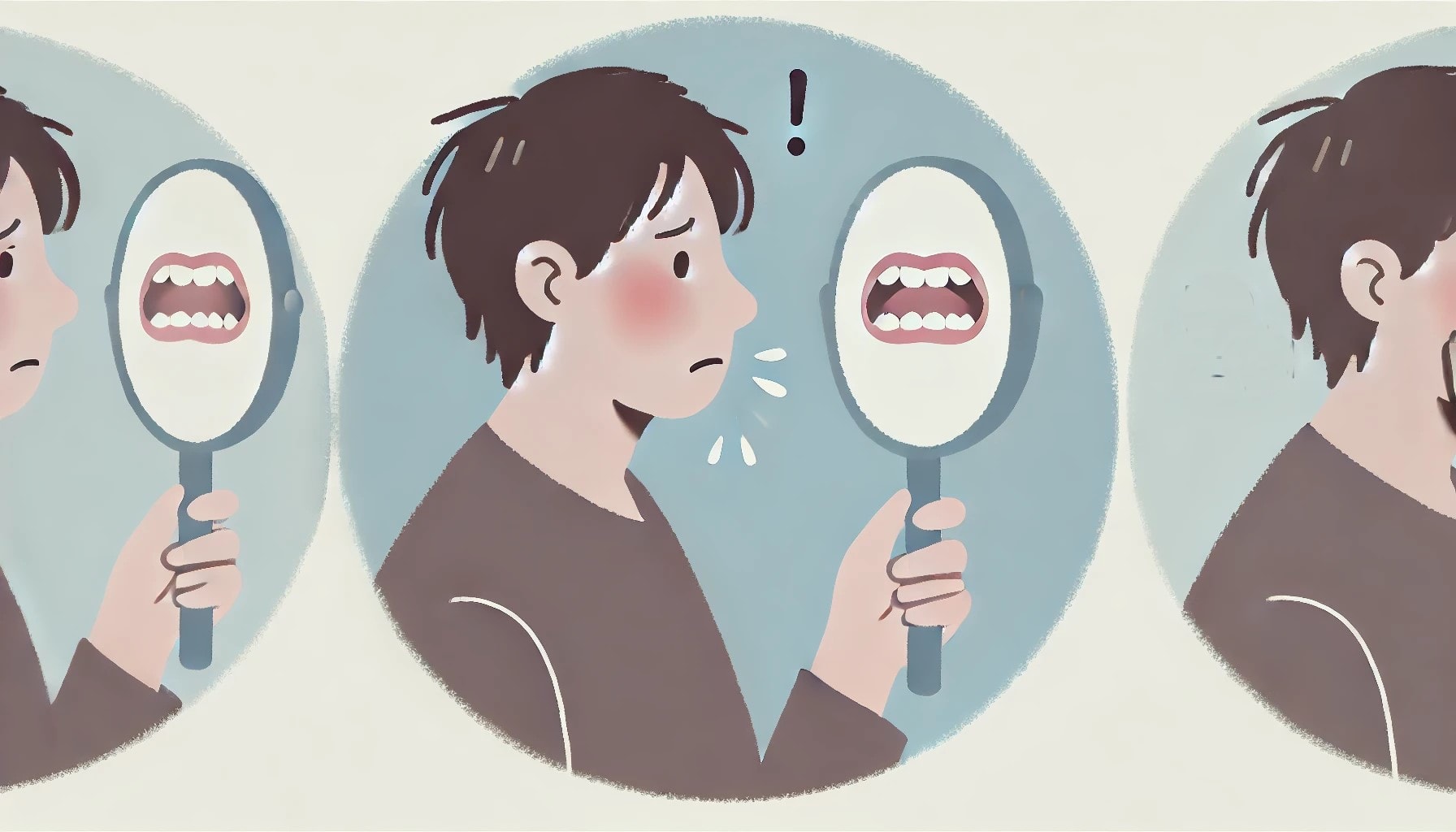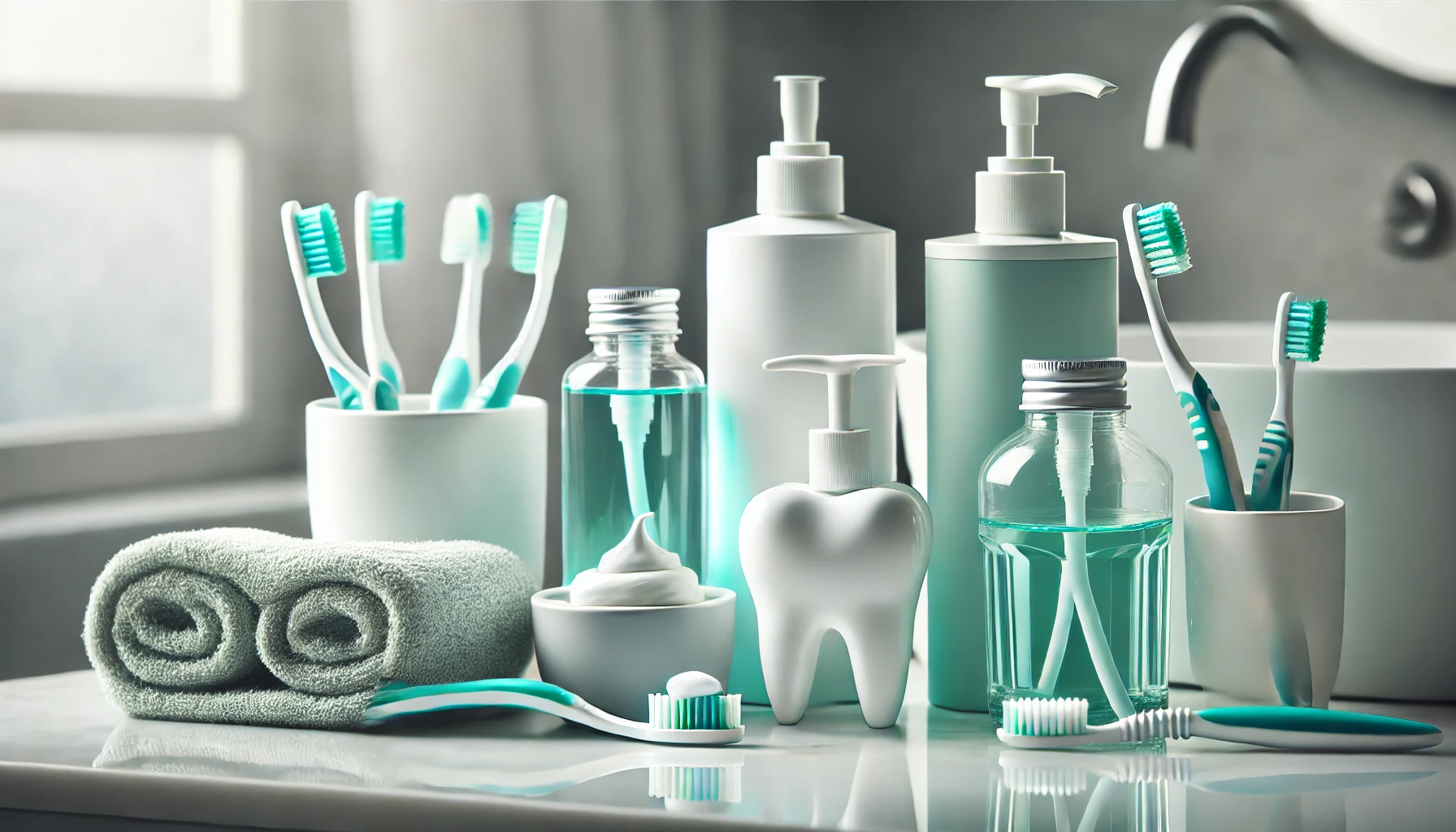Bad breath, also known as halitosis, can be embarrassing and may even affect your confidence in social situations.
Often, it is caused by poor oral hygiene, but it can also indicate underlying health issues. This article will explore the common causes of bad breath, practical solutions to fix it, and how maintaining good oral hygiene can help keep your breath fresh for good.
Common causes of bad breath
Bacteria buildup in the mouth is a leading cause of bad breath, often resulting from inadequate brushing and flossing, which leads to food particles remaining between teeth and around the gums. These particles become breeding grounds for odor-causing bacteria.
Dry mouth is another contributing factor, as it reduces saliva production, which helps cleanse the mouth and remove debris.
Certain foods like garlic, onions, and spicy dishes release volatile compounds that enter the bloodstream and are expelled through the breath. Smoking and tobacco use not only contribute to mouth odor but also promote gum disease, which is another source of bad breath.
Medical conditions such as sinus infections, respiratory tract infections, and gastrointestinal disorders may also lead to persistent bad breath, as they can cause the release of specific compounds into the mouth.
Poorly fitting dental appliances can trap particles and bacteria, adding to the problem. Understanding these common causes is essential to effectively managing and preventing bad breath, thereby boosting confidence in personal interactions.
How to treat bad breath at home
Practicing good oral hygiene is the first step in treating bad breath at home. Start by brushing your teeth at least twice a day with fluoride toothpaste to remove food particles and plaque. Don’t forget to floss daily to clear debris and plaque between teeth.
Consider using a tongue scraper to eliminate odor-causing bacteria on the tongue. In addition to these basics, staying hydrated is key. Drinking plenty of water throughout the day helps produce saliva, which naturally cleanses the mouth. Chewing sugar-free gum can also stimulate saliva production, offering additional cleansing power and freshening breath.
Limiting certain foods that can cause bad breath, such as garlic and onions, is also advisable. Using an antibacterial mouthwash can further help in reducing bacteria and maintaining fresh breath. If you wear dentures or other dental appliances, make sure to clean them thoroughly every day.
Regularly replacing your toothbrush, ideally every three to four months, helps ensure optimal oral hygiene. By incorporating these simple practices into your daily routine, you can effectively manage and prevent bad breath from the comfort of your home.
Bad breath could be a sign of a bigger problem
While most cases of bad breath can be attributed to oral hygiene issues, persistent bad breath that doesn’t improve with standard dental care may signal more serious health concerns. Periodontal disease, a chronic inflammatory condition affecting the gums and bone supporting the teeth, is a common culprit and requires professional treatment.
Respiratory infections like bronchitis, pneumonia, and chronic sinus infections can create post-nasal drip, resulting in bad breath. Similarly, digestive system disorders, such as acid reflux or gastroesophageal reflux disease (GERD), may cause odor when stomach acids are regurgitated into the esophagus and mouth. Additionally, conditions like diabetes can result in a fruity breath odor, indicating imbalances in blood sugar levels.
Liver or kidney disease might also manifest through unusual breath scents due to the body’s inability to process toxins effectively. If you notice a persistent and unexplained change in the freshness of your breath, consult a healthcare professional for a comprehensive evaluation. This can help identify underlying health issues early and ensure you receive the appropriate treatment.
Dental products for preventing bad breath
When it comes to maintaining fresh breath, choosing the right dental products can make a significant difference.
A reliable fluoride toothpaste is essential, which help fight plaque and bacteria while keeping your breath fresh. Incorporating an antibacterial mouthwash can further reduce bacteria and provide long-lasting freshness. A good quality toothbrush, such as an electric toothbrush, ensures efficient cleaning of teeth and gums.
A tongue scraper can effectively remove odor-causing bacteria from the tongue, a common source of bad breath. For those who wear dental appliances, using a specialized cleanser is crucial for preventing odor from trapped bacteria.
Sugar-free gum is also a handy option to have on-the-go, stimulating saliva production and providing an immediate boost to breath freshness. By selecting these dental products, you can effectively combat bad breath and enjoy greater confidence in your day-to-day interactions.
Here’s how you can fix bad breath for good:
- Improve your oral hygiene: Brushing twice a day, flossing regularly, and using mouthwash can help remove bacteria and food particles that cause bad breath.
- Clean your tongue: A lot of bacteria that cause bad breath are found on the tongue. Using a tongue scraper or brushing your tongue can help reduce this issue.
- Stay hydrated: Dry mouth can cause bad breath, so drinking plenty of water throughout the day helps keep your mouth moist and free from bacteria.
- Adjust your diet: Avoid foods such as onions and garlic that can contribute to bad breath, and include more fresh fruits and vegetables.
- Visit your dentist regularly: Persistent bad breath can sometimes be a sign of gum disease or other dental problems. Regular dental checkups ensure that any issues are caught early.
Summary:
Bad breath can be caused by a variety of factors, including poor oral hygiene, certain foods, and underlying health conditions.
By following a thorough oral hygiene routine, cleaning your tongue, staying hydrated, and making dietary adjustments, you can eliminate bad breath for good. If the problem persists, visiting your dentist can help address any deeper issues that might be caused by gum disease or other conditions.
Questions and Answers
What is the most common cause of bad breath?
The most common cause of bad breath is poor oral hygiene, which results in the buildup of bacteria and food particles in the mouth. When these particles are not effectively removed, they decompose, releasing foul-smelling odors.
Can bad breath be caused by certain foods?
Yes, certain foods such as garlic and onions contain sulfur compounds that can lead to bad breath. When these foods are digested, the compounds are absorbed into the bloodstream and then excreted through the lungs, causing noticeable bad breath even hours after consumption.
How does dry mouth contribute to bad breath?
Dry mouth, or xerostomia, occurs when the production of saliva is reduced. Saliva is crucial as it helps wash away food particles and bacteria from the mouth. Without adequate saliva, the environment becomes conducive to bacterial growth, leading to bad breath.
How can I improve my oral hygiene routine?
To maintain good oral hygiene, brush your teeth at least twice a day with fluoride toothpaste, floss daily to remove food particles between teeth, use an antibacterial mouthwash to kill germs, and don’t forget to clean your tongue. Regular dental check-ups are also important.
When should I see a dentist about my bad breath?
If your bad breath persists despite maintaining good oral hygiene, it is advisable to see a dentist. Persistent bad breath can be indicative of underlying issues such as gum disease, tooth decay, or other medical conditions that may require professional treatment.
Can bad breath be a sign of gum disease?
Yes, bad breath can be an early symptom of gum disease. This condition is caused by the buildup of plaque and bacteria around the gums, which can lead to inflammation and infection. Early detection and treatment are crucial to prevent more serious dental issues.
What foods should I avoid to prevent bad breath?
To prevent bad breath, avoid foods such as onions, garlic, and spicy foods that tend to linger in your mouth. Additionally, consider reducing sugary foods and beverages, as they can promote bacterial growth and contribute to bad breath.
Is mouthwash effective in treating bad breath?
Yes, using mouthwash can help reduce bad breath by killing bacteria and freshening your breath. However, it should be used in combination with regular brushing and flossing for maximum effectiveness. Choose an antiseptic mouthwash to target odor-causing bacteria specifically.
Can dehydration cause bad breath?
Yes, dehydration can lead to dry mouth, which exacerbates bad breath. Without enough water intake, saliva production drops, creating an environment where bacteria can thrive. Staying hydrated is essential for maintaining saliva flow and preventing bad breath.
How often should I brush my tongue to reduce bad breath?
Brushing your tongue once or twice a day, along with your regular brushing routine, can help reduce bacteria and keep your breath fresh. The tongue’s surface can harbor bacteria, so using a tongue scraper or a soft-bristled toothbrush will help maintain oral hygiene.








